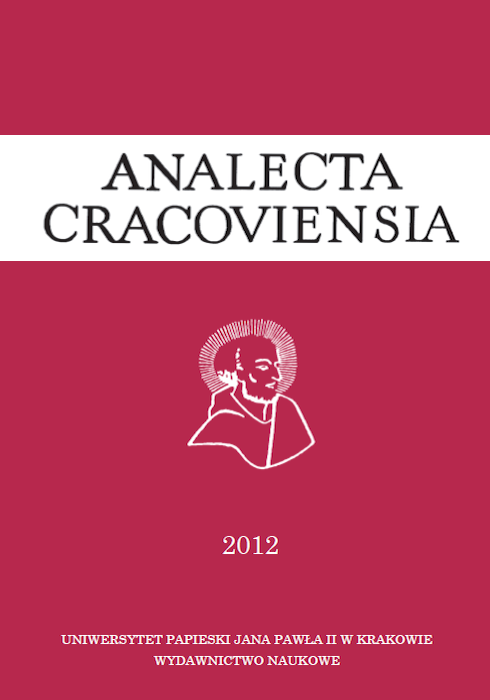Structure of man in the biblical act of Creation
Structure of man in the biblical act of Creation
Author(s): Marek TatarSubject(s): Biblical studies, Sociology of Religion
Published by: Wydawnictwo Naukowe Uniwersytetu Papieskiego Jana Pawła II w Krakowie
Keywords: Bible; Creation; Jesus Christ; man; nature; Old Testament;
Summary/Abstract: The question about man, his origin, structure, place, and role in the world, relation to others and his ultimate goal, belongs to fundamental categories. In his pursuits, man constantly tries to find the right answer to this important question. The basis of this analysis forms the structure of man resulting from the act of creation as described in the Bible. In the Old Testament we have two texts about the proctology of man: Yahwistic (Gen 2, 4b –24) and Elohistic (Gen 1, 26–28). Both Angelo Scola and Luis F. Ladaria see the ultimate structural view of humankind in the person of Jesus Christ. That is why the Old Testament texts concerning creation are fully implemented in the mystery of Incarnation and Redemption. The name “a human” itself there is a claim about the greatness of his nature (cataphasis). Observation and experience indicate also his limitations (apophasis). Therefore, it can be stated that in the human nature there must be integrity (henozis) in this respect constituting the basis of his whole humanity. Biblical texts indicate that man is aware of his dependence on God, simultaneously however, he makes an attempt of self – determination which is a kind of self–creation. The relationship with God has its source in the external experience (man listens to God, expresses his needs and hides from Him) and, at the same time, goes beyond human rationality and volition. It is an invitation to the trinitarian communion of the Father, the Son and the Holy Spirit. The community of the Holy Trinity is at the same time the community of man. The creatio of man as male and female highlights one more important structural and subjective element, that is, a relationship with others which constitutes the foundation for a community of people. Jesus Christ is the way towards this union, as its cause, model and aim. In the mystery of His Person we discover the “image and likeness”, because He is the personification of full and perfect humanity. Therefore, the whole Christian spirituality must be Christocentric and at the same time Christoformic. The attempts to define man in his essence play a crucial role in the present world affected by subjectivity, individualism, hedonism and horisontalism.
Journal: Analecta Cracoviensia. Czasopismo Uniwersytetu Papieskiego Jana Pawła II w Krakowie
- Issue Year: 2012
- Issue No: 44
- Page Range: 191-198
- Page Count: 8
- Language: English

